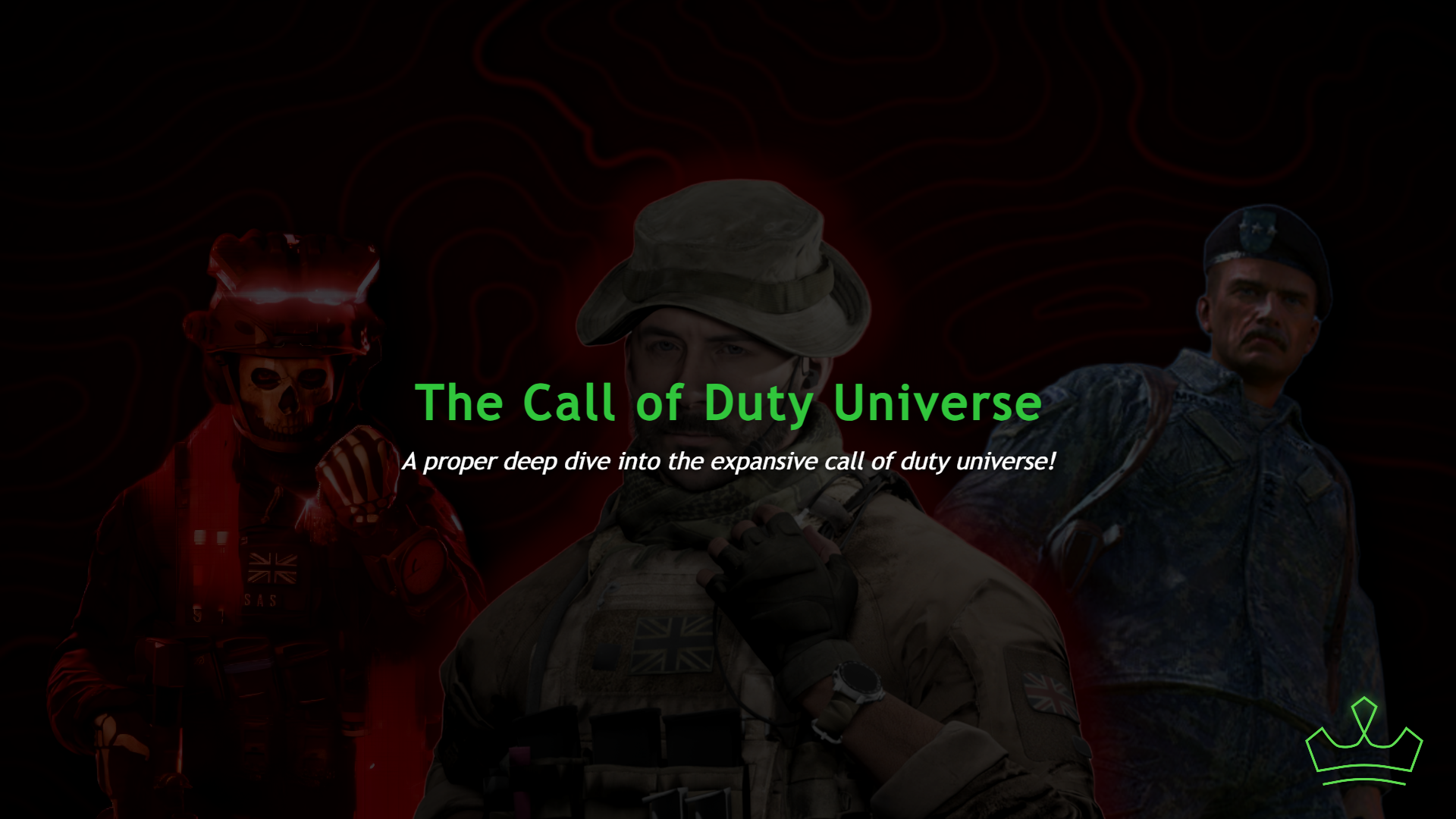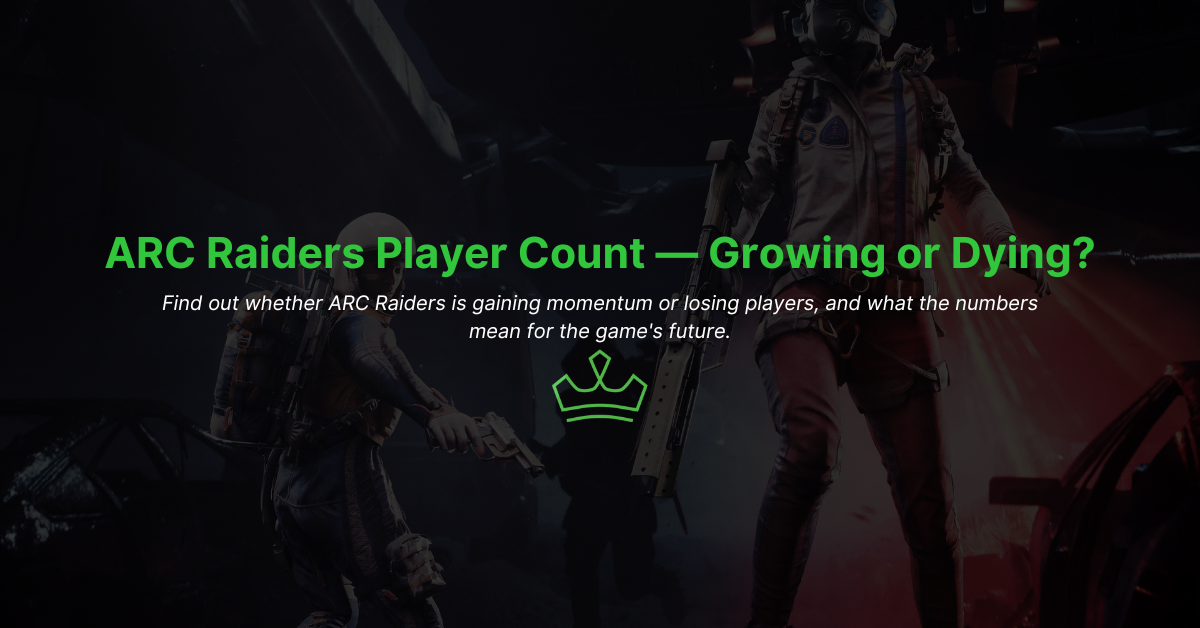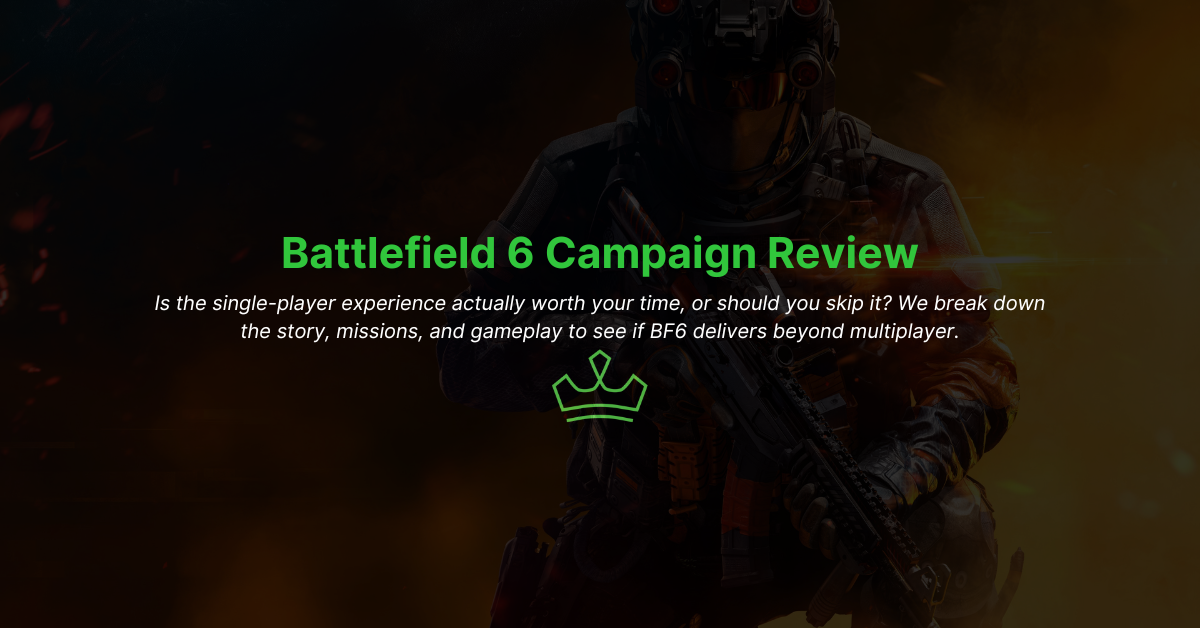The Call of Duty universe is one of the most iconic and expansive franchises in gaming history. Since its launch in 2003, the series has captivated millions of players around the world with its immersive storylines, intense gameplay, and unforgettable multiplayer experiences.
Spanning multiple time periods—from the trenches of World War II to futuristic battlefields—Call of Duty has redefined what it means to be a first-person shooter.
In this article, we’ll explore the complete order of the Call of Duty games, highlighting the evolution of the franchise and its impact on the gaming world.
Whether you’re a longtime fan or new to the series, this journey through the Call of Duty universe will show you how the franchise has evolved into the powerhouse it is today.
What is the release order of the Call of Duty games?
With over two decades of history, the Call of Duty series has spanned numerous time periods, settings, and themes. From its roots in World War II to futuristic combat, the franchise has grown and evolved with each release.
Understanding the order of the Call of Duty games can help new players explore the franchise in chronological sequence, or longtime fans revisit their favorite titles. Below is a table that lists each main title in the Call of Duty universe in the order of release, along with their platforms and setting.
The order of the Call of Duty games
| Year | Title | Platform(s) | Setting/Time Period |
| 2003 | Call of Duty | PC | World War II |
| 2005 | Call of Duty 2 | PC, Xbox 360 | World War II |
| 2006 | Call of Duty 3 | PS2, PS3, Xbox, Wii | World War II |
| 2007 | Call of Duty 4: Modern Warfare | PC, PS3, Xbox 360 | Modern (2007) |
| 2008 | Call of Duty: World at War | PC, PS3, Xbox 360, Wii | World War II (Pacific) |
| 2009 | Call of Duty: Modern Warfare 2 | PC, PS3, Xbox 360 | Modern (2016) |
| 2010 | Call of Duty: Black Ops | PC, PS3, Xbox 360 | Cold War |
| 2011 | Call of Duty: Modern Warfare 3 | PC, PS3, Xbox 360 | Modern (2016–2017) |
| 2012 | Call of Duty: Black Ops II | PC, PS3, Xbox 360 | Cold War & 2025 |
| 2013 | Call of Duty: Ghosts | PC, PS4, Xbox One | Near Future (2027) |
| 2014 | Call of Duty: Advanced Warfare | PC, PS4, Xbox One | Futuristic (2054) |
| 2015 | Call of Duty: Black Ops III | PC, PS4, Xbox One | Futuristic (2065) |
| 2016 | Call of Duty: Infinite Warfare | PC, PS4, Xbox One | Far Future (2187) |
| 2017 | Call of Duty: WWII | PC, PS4, Xbox One | World War II |
| 2018 | Call of Duty: Black Ops 4 | PC, PS4, Xbox One | Near Future (2020s) |
| 2019 | Call of Duty: Modern Warfare | PC, PS4, Xbox One | Modern (Reboot) |
| 2020 | Call of Duty: Black Ops Cold War | PC, PS4, PS5, Xbox | Cold War (1980s) |
| 2021 | Call of Duty: Vanguard | PC, PS5, Xbox Series X | World War II (Alternate) |
| 2022 | Call of Duty: Modern Warfare II | PC, PS5, Xbox Series X | Modern (Reboot, 2022) |
| 2023 | Call of Duty: Modern Warfare III | PC, PS5, Xbox Series X | Modern (Reboot, 2023) |
| 2024 | Call of Duty: Black Ops 6 | PC, PS5, Xbox Series X | Gulf War (1990s) |
The evolution of the Call of Duty universe
The Call of Duty universe has come a long way since its initial release in 2003. What began as a series focused on historical warfare has evolved into a vast, multidimensional universe that spans across different timelines, technological eras, and even alternate realities.
Let’s take a closer look at how the Call of Duty universe has grown and adapted to changing tastes and technologies in the gaming world.
The World War II Era (2003–2008)

The Call of Duty universe began with its roots deeply embedded in the World War II era. These early titles transported players to the front line of history’s most significant conflict, with detailed depictions of battles across Europe, the Pacific, and North Africa.
During this phase, players experienced the intensity of war through the eyes of soldiers on the ground, navigating iconic battles and recreating historical moments.
Key Games in this Era:
- Call of Duty (2003) – Set the stage with missions inspired by real-life events in WWII.
- Call of Duty 2 (2005) – Expanded the battlefield with larger maps and improved AI.
- Call of Duty: World at War (2008) – Introduced players to the Pacific theater and the gritty, violent side of war, paving the way for the fan-favorite Zombies mode.
Modern Warfare Era (2007–2011)

With the release of Call of Duty 4: Modern Warfare in 2007, the franchise took a major leap into modern combat, revolutionizing the shooter genre.
The series shifted its focus from historical conflicts to modern, fictionalized wars, introducing iconic characters like Captain Price and Soap MacTavish.
The Modern Warfare era brought more realistic weaponry, tactics, and technology, setting a new standard for military shooters.
Key games in this era:
- Call of Duty 4: Modern Warfare (2007) – Introduced the shift to modern-day warfare, revolutionizing the franchise with advanced weaponry, multiplayer innovations, and an iconic storyline featuring Captain Price and Soap MacTavish.
- Call of Duty: Modern Warfare 2 (2009) – Continued the gripping narrative of Task Force 141, introducing memorable moments such as “No Russian” and expanding the multiplayer experience with new killstreaks and perks.
- Call of Duty: Modern Warfare 3 (2011) – Concluded the original Modern Warfare trilogy, with a global conflict that tested alliances and brought a dramatic end to the storylines of key characters.
Futuristic Warfare and Alternate Realities (2012–2018)

As the series progressed, the Call of Duty universe ventured into futuristic settings, taking players to battlefields of tomorrow with high-tech weaponry, exoskeletons, and even space combat.
Titles like Call of Duty: Black Ops II and Infinite Warfare explored the limits of warfare, introducing new game mechanics and alternative narratives.
Key games in this era:
- Call of Duty: Black Ops II (2012) – Blended Cold War-era missions with futuristic 2025 battles, creating a split narrative that pushed the boundaries of storytelling.
- Call of Duty: Advanced Warfare (2014) – Focused on private military companies (PMCs) and the technological future of combat, with exoskeletons and drones playing a major role.
- Call of Duty: Infinite Warfare (2016) – Brought combat to space, showcasing the franchise’s willingness to explore alternate realities and entirely new settings.
- Call of Duty: Black Ops 4 (2018) – Took a unique approach by removing the single-player campaign and focusing on multiplayer, including the franchise’s first Battle Royale mode, Blackout.
The return to World War II and Modern Warfare (2017–Present)

As the Call of Duty universe evolved, the franchise made a notable return to its roots with a modernized take on World War II in 2017.
Alongside this return, the series also rebooted its Modern Warfare saga, bringing back fan-favorite characters and narratives with updated gameplay mechanics and stunning visuals.
This era balances nostalgia with innovation, offering players a mix of classic and modern combat experiences.
Key games in this era:
- Call of Duty: WWII (2017) – A return to the franchise’s roots, offering a gritty, realistic portrayal of World War II with a strong focus on historical accuracy and cinematic storytelling.
- Call of Duty: Modern Warfare (2019) – A reimagining of the Modern Warfare series, with an updated engine, realistic combat, and a deep storyline featuring Captain Price and modern-day geopolitics.
- Call of Duty: Warzone (2020) – A standalone, free-to-play battle royale mode that became a massive success, integrating content from Modern Warfare and later titles, with a large player base and constant updates.
- Call of Duty: Modern Warfare III (2023) – The latest installment in the Modern Warfare series, continuing the storyline of Task Force 141 and offering a more immersive experience with deeper Warzone integration.
- Call of Duty: Black Ops 6 (2024) – The latest Call of Duty is set in 1991, following rogue operatives Troy Marshall and Frank Woods. The game has introduced several new mechanics, such as the much anticipated omni movement.
What makes the Call of Duty universe so iconic?
The Call of Duty universe is more than just a series of games—it’s a cultural phenomenon that has redefined the shooter genre for nearly two decades.
With its combination of immersive storylines, unforgettable characters, and innovative multiplayer experiences, Call of Duty has captured the hearts of millions of players worldwide.
Let’s explore what makes this universe so iconic:
Immersive storylines and campaigns

One of the defining features of the Call of Duty universe is its ability to transport players into gripping, action-packed narratives.
From the harrowing battles of World War II to covert modern-day operations, each game offers a storyline that pulls players into its world with cinematic realism and emotional depth.
Examples:
- Modern Warfare (2019) – With its realistic portrayal of modern conflicts, this reboot delivers a gritty campaign that feels ripped from the headlines.
- Black Ops Series – Known for its mind-bending narratives, especially in games like Black Ops II, which spans both the Cold War and futuristic warfare.
Memorable characters

Throughout its many iterations, the Call of Duty universe has introduced players to a roster of iconic characters, each with their own personalities and legacies.
These characters aren’t just soldiers; they’re symbols of loyalty, bravery, and determination, and they have left a lasting mark on gaming culture.
Fan-favorite characters:
- Captain Price – The ever-reliable leader who became a central figure in the Modern Warfare series.
- Frank Woods – The tough-as-nails operator from the Black Ops series, known for his gritty attitude and fearless approach to missions.
- Ghost – Instantly recognizable with his skull mask, Ghost remains one of the most beloved and mysterious figures in the Modern Warfare franchise.
The evolution of multiplayer

No discussion of the Call of Duty universe would be complete without mentioning its revolutionary impact on multiplayer gaming.
Since the launch of Call of Duty 4: Modern Warfare, the series has set new standards for online shooters, introducing features like kill streaks, loadouts, and expansive, evolving maps that have kept players engaged for years.
Key innovations for multiplayer gaming:
- Kill streaks and Perks – Introduced in Modern Warfare, these features revolutionized online gameplay by rewarding players for their performance.
- Battle Royale – With the release of Call of Duty: Warzone, the franchise embraced the battle royale genre, blending tactical gun play with large-scale, last-man-standing gameplay.
- Cross-Platform Play – Recent titles have allowed players on different platforms to join the same matches, breaking down barriers and uniting the community.
Call of Duty spin-offs and expansions
Beyond the mainline titles, the Call of Duty universe has expanded through spin-offs, mobile games, and additional modes that offer players new ways to experience the franchise.
From battling the undead in zombies mode to experiencing intense multiplayer action on-the-go with Call of Duty Mobile, these expansions have helped Call of Duty remain a leader in the gaming world.
Call of Duty Mobile

Launched in 2019, Call of Duty Mobile brought the franchise’s iconic gameplay to smartphones, allowing players to enjoy their favorite modes and maps from the comfort of their mobile devices.
With a mix of battle royale, multiplayer, and zombies, the game has quickly gained a massive global following, proving that the Call of Duty universe can thrive on any platform.
Key Highlights:
- Classic Maps and Modes – Features fan-favorite maps like Nuketown and Crash, as well as signature modes like Team Deathmatch and Domination.
- Mobile Warzone – Offers a full-scale battle royale mode similar to Warzone, but optimized for mobile play.
- Seasonal Content – Regular updates bring new operators, weapons, and maps, ensuring a fresh and exciting experience for players.
Call of Duty Zombies

Introduced in Call of Duty: World at War (2008), Zombies Mode quickly became a fan favorite, blending the fast-paced action of Call of Duty with the survival horror genre.
Over the years, this mode has evolved, with increasingly complex storylines, new weapons, and special abilities to keep players coming back for more.
Key Highlights:
- Evolving Storylines – From the early days of fighting Nazi zombies in World at War to the elaborate plot lines of Black Ops Cold War, zombies mode has taken players on a narrative journey of survival and mystery.
- Co-op Gameplay – Teams of up to four players work together to fend off waves of zombies, solve puzzles, and uncover hidden Easter eggs.
- Unique Abilities and Weapons – Introduced features like Gobblegums, Pack-a-Punch machines, and special weapons that add depth and strategy to the gameplay.
Call of Duty Warzone

Although it’s part of the main franchise, Call of Duty Warzone has grown into its own standalone phenomenon since its release in 2020.
This free-to-play battle royale mode offers an expansive battlefield, combining the tactical gameplay of Call of Duty with the high-stakes action of the battle royale genre.
Key Highlights:
- 150-player matches – Warzone’s large-scale battles offer intense action, with multiple teams vying for victory.
- Cross-platform play – Warzone broke barriers by allowing players on PlayStation, Xbox, and PC to compete together.
- Constant updates – Regular seasons and content drops introduce new maps, operators, and game modes, keeping the experience fresh and competitive.
The lasting impact of the Call of Duty universe
The Call of Duty universe has grown far beyond its original roots, evolving from a World War II shooter into a multi-faceted franchise that spans different eras, universes, and genres. Whether you’re fighting in the trenches of World War II, engaging in modern-day tactical missions, or exploring futuristic battlefields, Call of Duty continues to redefine the first-person shooter genre.
With iconic characters, immersive storylines, and groundbreaking multiplayer innovations, Call of Duty has become a cultural phenomenon that keeps players coming back year after year. From the tense, high-stakes missions in the Modern Warfare series to the mind-bending narratives of Black Ops, the franchise offers something for every kind of player.
As the Call of Duty universe continues to expand with new titles and experiences like Warzone and Black Ops 6, it’s clear that this legacy is far from over.
Whether you’re a veteran player or new to the series, there’s never been a better time to dive into the action and explore everything the Call of Duty universe has to offer.
Ready to dominate the Call of Duty universe?
Ready to take your Call of Duty gameplay to the next level? Explore Elocarry’s cheats for Call of Duty and gain the edge you need to dominate the battlefield. Whether it’s Warzone, or Black Ops 6, our cheats are designed to help you perform at your best. Get started today and boost your gameplay!
Frequently Asked Questions (FAQs)
View the answers to frequently asked questions (FAQs) about the Call of Duty universe:
The Call of Duty universe refers to the overarching world within which the games take place. While each Call of Duty series often has its own unique storyline and characters, certain games—like the Modern Warfare and Black Ops franchises—share a connected universe, where characters and storylines may overlap.
The universe spans multiple time periods, from World War II to the distant future, with each game focusing on immersive storytelling and intense combat scenarios.
There are four distinct universes within the Call of Duty franchise, each with its own unique setting, characters, and storyline. These universes are:
World War II Universe – Encompasses games like Call of Duty, Call of Duty 2, Call of Duty: World at War, Call of Duty: WWII, and Call of Duty: Vanguard, which are set during or inspired by the events of World War II.
Modern Warfare Universe – Features a more modern, realistic setting focused on international conflict and terrorism, including Call of Duty 4: Modern Warfare, Modern Warfare 2, Modern Warfare 3, and the rebooted series starting with Modern Warfare (2019).
Black Ops Universe – A mix of Cold War espionage and futuristic warfare, spanning games like Call of Duty: Black Ops, Black Ops II, Black Ops III, Black Ops 4, Black Ops Cold War, and Black Ops 6.
Ghosts Universe – Introduced in Call of Duty: Ghosts, this universe is set in a near-future world devastated by war and environmental disaster.
Advanced/Futuristic Warfare Universe – Includes titles like Call of Duty: Advanced Warfare and Infinite Warfare, set in futuristic worlds with advanced technology and space combat.
Each universe offers a different take on warfare, allowing players to experience various time periods, themes, and play styles.
For new players, a great place to start is with either the Modern Warfare or Black Ops series. Both offer gripping campaigns, engaging multiplayer modes, and iconic characters.
If you’re looking for a mix of modern combat and classic Call of Duty gameplay, try starting with Call of Duty: Modern Warfare (2019) or Call of Duty: Black Ops Cold War (2020).
For a battle royale experience, Call of Duty: Warzone is free-to-play and offers cross-platform multiplayer.







